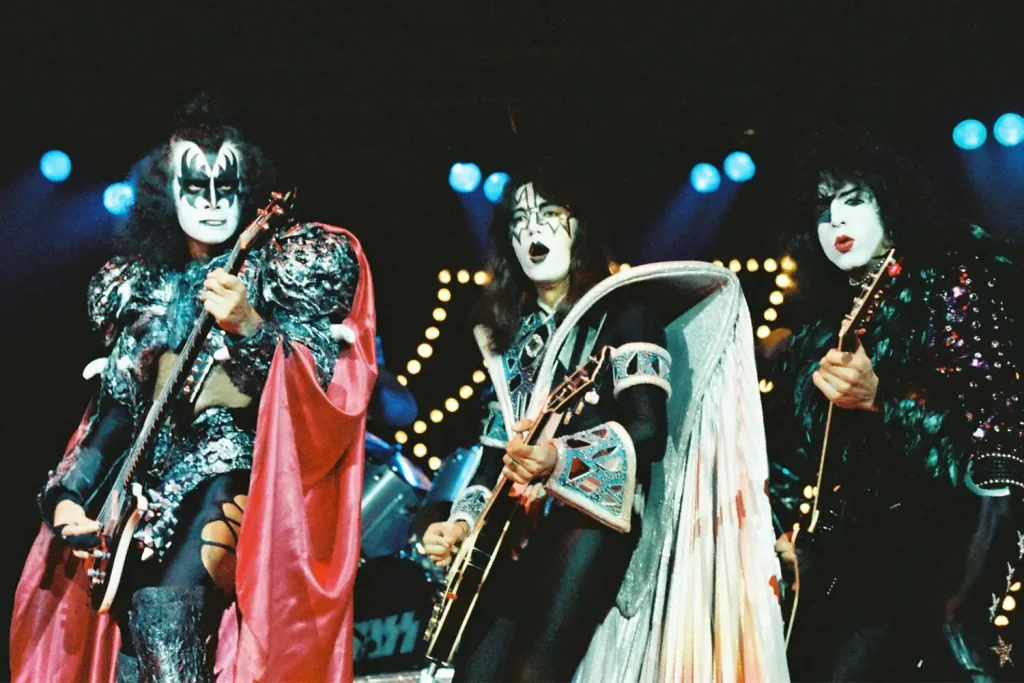KISS Icon Ace Frehley’s Cause of Death Officially Revealed: Blunt Trauma to the Head After Fall, Medical Examiner Confirms
The world of rock music is grappling with the confirmed details of the passing of Ace Frehley, the legendary founding guitarist of KISS, as the Morris County (New Jersey) Medical Examiner’s office ruled his death the result of blunt trauma injuries to the head following a fall at his home. Frehley, aged 74, died on October 16 2025, in Morristown, New Jersey, after a period of hospitalization. The medical examiner’s documents, as obtained by multiple news outlets, classify the manner of death as an accident — blunt trauma sustained in a fall at his residence.

While the news shocks many fans and peers alike, the circumstances leading up to his death had raised concern for weeks. In late September, Frehley posted via Instagram that he had suffered what he called a “minor fall in my studio,” which forced him to cancel a scheduled performance the next day. Soon after, he canceled the remainder of his 2025 tour dates citing “ongoing medical issues.” According to the timeline of events, the fall apparently caused a brain bleed, and Frehley was placed on life support in hospital. His condition failed to improve, and ultimately the fall and subsequent head injury were fatal.
For the guitarist whose persona as “The Spaceman” became iconic in the explosion of arena rock alongside Gene Simmons, Paul Stanley and Peter Criss, the news resonates not only as a tragic end but as a reminder of the fragility of life, even for rock heroes. Frehley’s family expressed their heartbreak in a statement that read, in part, “We are completely devastated and heartbroken. In his last moments we were fortunate enough to be able to surround him with loving, caring, peaceful words, thoughts, prayers and intentions as he left this earth. We cherish all of his finest memories, his laughter and celebrate his strengths and kindness that he bestowed upon others.”

His passing has drawn tributes from across the rock world, with fellow band members and musicians recognizing his influence and legacy. Simmons and Stanley jointly described him as “essential and irreplaceable rock soldier during some of the most formative foundational chapters of the band and its history.”
Digging deeper into the circumstances, the fall is believed to have occurred in Frehley’s home studio in late September when he reportedly slipped and struck his head. While initially he described it publicly as “minor,” medical insiders later revealed that it resulted in a brain bleed that required ventilator support. The death certificate’s designation of blunt trauma to the head clarifies that the fall itself — rather than a pre-existing illness — was the proximate cause of death.
Frehley’s career had spanned more than five decades, beginning with KISS’s formation in 1973, where his blistering guitar work, larger-than-life makeup and stage persona helped define the band’s identity and contributed to landmark albums such as Alive!, Destroyer, Rock and Roll Over and Love Gun. After departing KISS in 1982, he went on to a solo career and released a string of albums, including his 2014 solo LP Space Invader, which made history as the only solo album by a KISS member to reach the Top 10 of the Billboard 200.
In the days following his death, fans and musicians gathered in tribute, and a memorial in his native Bronx borough was reportedly held with Simmons, Stanley and Criss in attendance. The structure of those gatherings underscores the deep sense of respect and camaraderie that persists despite the well-documented tensions between Frehley and his former bandmates.

From a broader perspective, Frehley’s death prompts reflection on head injuries and falls among older adults — particularly high-risk situations in which even a “minor fall” can lead to devastating outcomes like intracranial hemorrhage. Medical advocates say that falls resulting in a head strike should always prompt immediate evaluation, especially for people over 65. While Frehley was 74, his situation shows that even an otherwise healthy individual can suffer rapid and fatal complications from what appears at first glance to be a small incident.
At the same time, the accident does not diminish any aspect of Frehley’s legacy. The music he made, the guitar style he pioneered, and the image he crafted remain timeless. Guitarists around the world, from the next generation of players to seasoned veterans, cite his solos, tone and stage persona as formative influences. In that sense, his passing marks not only an ending but also the permanence of his impact. As one tribute noted: “I would not have picked up a guitar without Ace and KISS’s influence.”
For his family, the pain of loss is deeply personal. Frehley is survived by his wife, Jeanette Trerotola, and daughter, Monique. In public statements, the family emphasized their desire to celebrate his life, remember his laughter and kindness, and carry his spirit forward.
As the rock world adjusts to the reality of Frehley’s passing, industry commentators note that the cause — blunt trauma to the head from a fall — highlights the importance of head-injury awareness in everyday life, even for the larger-than-life figures of popular culture. It reminds us that the human vulnerabilities behind the stage persona are real, and that sometimes the most unexpected events can bring them to the fore.
In closing, Ace Frehley’s final chapter may have closed under tragic circumstances, but his story is far from diminished. It’s a story of creativity, fearlessness, showmanship and singular devotion to the guitar and the stage. It’s a legacy that persists, not only in vinyl and streaming, but in the countless musicians he inspired. As the music world says goodbye to the “Spaceman,” it also acknowledges that his influence will continue to orbit indefinitely.


